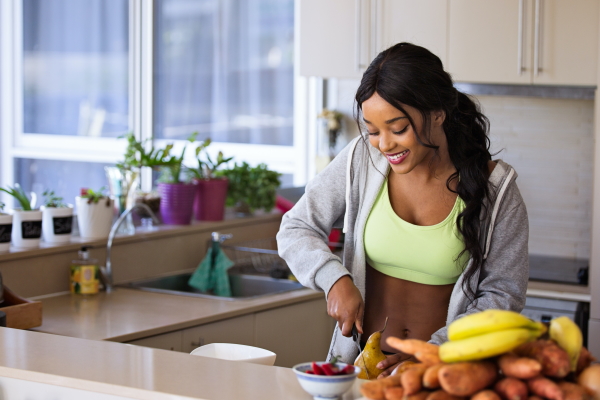Top 7 recommendations for better gut function through your microbiome
Having gut issues is not only uncomfortable and sometimes embarrassing but can also lead to a whole host of more complex diseases. There are many simple but effective ways to enhance your microbiome and gut function. Here are the 7 recommendations that you can implement into your day:
1.Diversify your diet – our ancestors not only ate seasonally but the also sourced a wide variety of foods from all different sources including roots, leaves, berries, seeds, nuts, fungi, fermented foods, wildlife and so on, consuming over 600 types of foods annually. We however are lucky to consume 15-20 foods. Think about your grocery shopping, we tend to choose the same vegetables, fruits, grains and proteins even when we are trying to be healthy. The average consumer is often choosing foods void of nutrients and the essentials for healthy gut function.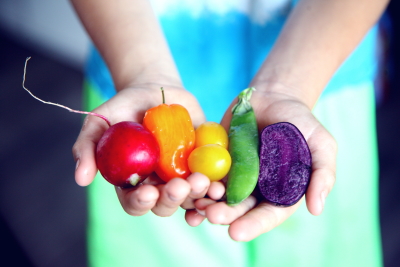
Try to diversify and aim for 40-50 different foods, focus on local seasonal produce as much as possible. TIP: next time you plan to go shopping pick a new vegetable or fruit, research how to cook it and try it, there are so many delicious foods that you may never have even tried. Try and do this every week. If you have tried to increase your intake of healthy foods such as fruits, vegetables and fermented foods and found that your gut feels worse please contact me as you may need to follow a specialised healing program.
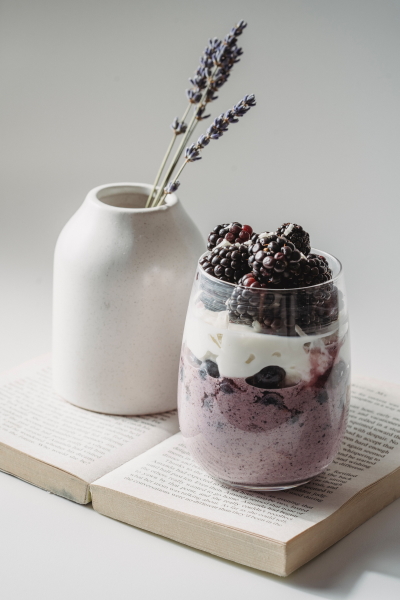 2. Add Fermented foods – fermented foods are used by most cultures around the world as part of a healthy diet. Fermentation has been overlooked in the western diet but is making a comeback as we know the importance of fermented foods for healthy gut functioning. If you are new to fermented foods start slowly with a small teaspoon and then you can build from there. Avoid fermented foods with added sugars and preservatives. Aim for foods in jars rather than tins. TIP: try one or some of the following in your daily diet, unsweetened natural pot set yoghurt (add berries for sweetness), sauerkraut, kimchi, pickles, kefir and kombucha (read labels as they can sneak extra sugars in), miso, tempeh (organic only) and natto. I love to make my own sauerkraut, kombucha and water kefir, I used the Mad Millie kits to get me started. Contact me if you’d like more information on fermented foods and how to make at home.
2. Add Fermented foods – fermented foods are used by most cultures around the world as part of a healthy diet. Fermentation has been overlooked in the western diet but is making a comeback as we know the importance of fermented foods for healthy gut functioning. If you are new to fermented foods start slowly with a small teaspoon and then you can build from there. Avoid fermented foods with added sugars and preservatives. Aim for foods in jars rather than tins. TIP: try one or some of the following in your daily diet, unsweetened natural pot set yoghurt (add berries for sweetness), sauerkraut, kimchi, pickles, kefir and kombucha (read labels as they can sneak extra sugars in), miso, tempeh (organic only) and natto. I love to make my own sauerkraut, kombucha and water kefir, I used the Mad Millie kits to get me started. Contact me if you’d like more information on fermented foods and how to make at home.
3. Timing – sometimes our gut needs a rest! Snacking and eating constantly may seem like a good idea to “fuel your metabolism” however this is not good for the gut. It’s good for growing babies but may be contributing to a growing waistline. If you look at what our grandparents or great grandparents did, they usually ate and then stopped until their next meal. There was also a lot less obesity and chronic health conditions compared to today.
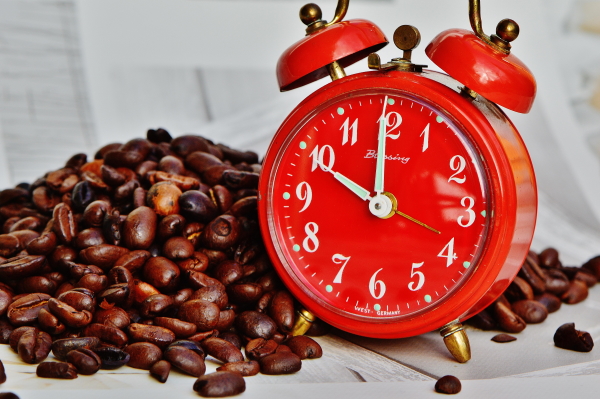 Our gut microbiome needs a period of fasting each day to do their “housekeeping” regenerating, eliminating, growing and functioning. TIP 1: take a look at how many hours you are currently consuming food over. Is it more than 12 hours? If so, start by restricting your hours of eating – your eating window, to 8-12 hours and drop the between meal snacks and see how you feel. This is known as intermittent fasting.
Our gut microbiome needs a period of fasting each day to do their “housekeeping” regenerating, eliminating, growing and functioning. TIP 1: take a look at how many hours you are currently consuming food over. Is it more than 12 hours? If so, start by restricting your hours of eating – your eating window, to 8-12 hours and drop the between meal snacks and see how you feel. This is known as intermittent fasting.
Jumping into longer fasting can be problematic depending on your current health and energy needs. Please contact me if you would like to learn more about fasting and how to implement it safely and effectively into your life.
TIP 2: If you find you are constantly hungry make sure you meals contain enough protein, healthy fats to help satisfy your hunger.
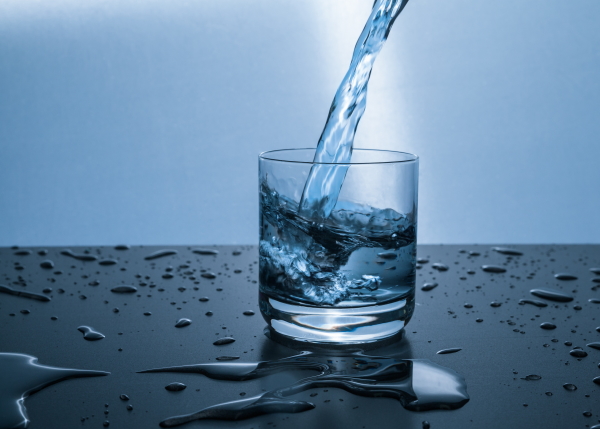 4. Drink water – filtered, clean water is a must for good health. Tap water can be laden with chemicals and industrial waste products which can affect our gut health and even kill off essential microbes. It is important to source quality filtered water. I understand that water filters can be expensive however if you can prioritise one into your budget it is worth it. You can buy a high-quality filter jug for around $100. Look for one that filters out 99% chlorine, fluoride, heavy metals, chemicals and bacteria. Companies like Waters Co Australia https://www.waterscoaustralia.com.au/ have quality water filters. TIP: Start each day with 2 large glasses of water and continue to drink water between meals. Don’t drink too much with a meal as this can affect your digestion. If you are an athlete, fasting or have higher needs you may need to consider electrolytes with your water. Contact me for more information on athlete plans, fasting plans and fluid and electrolytes.
4. Drink water – filtered, clean water is a must for good health. Tap water can be laden with chemicals and industrial waste products which can affect our gut health and even kill off essential microbes. It is important to source quality filtered water. I understand that water filters can be expensive however if you can prioritise one into your budget it is worth it. You can buy a high-quality filter jug for around $100. Look for one that filters out 99% chlorine, fluoride, heavy metals, chemicals and bacteria. Companies like Waters Co Australia https://www.waterscoaustralia.com.au/ have quality water filters. TIP: Start each day with 2 large glasses of water and continue to drink water between meals. Don’t drink too much with a meal as this can affect your digestion. If you are an athlete, fasting or have higher needs you may need to consider electrolytes with your water. Contact me for more information on athlete plans, fasting plans and fluid and electrolytes.
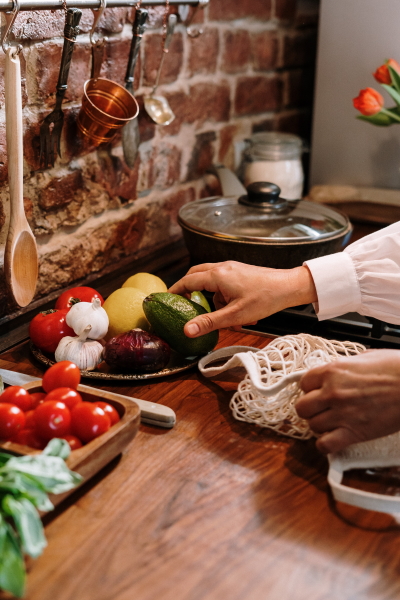 5. Eat Organic or Non-Pesticide Foods – where possible try to source local organic foods. Some local farmers may grow organic foods but can’t afford the organic certification label. These are usually advertised as spray-free. Organic and spray-free foods contain far less harmful chemical pesticides like glyphosate which is harmful to our health and out gut. TIP 1: Try to buy local organic food and get to know your local growers or store owner that stock these foods. Tip 2: Avoid ultra-processed fast foods, packaged convenience food, snacks and meals that contain multiple ingredients some of which you may not be able to pronounce.
5. Eat Organic or Non-Pesticide Foods – where possible try to source local organic foods. Some local farmers may grow organic foods but can’t afford the organic certification label. These are usually advertised as spray-free. Organic and spray-free foods contain far less harmful chemical pesticides like glyphosate which is harmful to our health and out gut. TIP 1: Try to buy local organic food and get to know your local growers or store owner that stock these foods. Tip 2: Avoid ultra-processed fast foods, packaged convenience food, snacks and meals that contain multiple ingredients some of which you may not be able to pronounce.
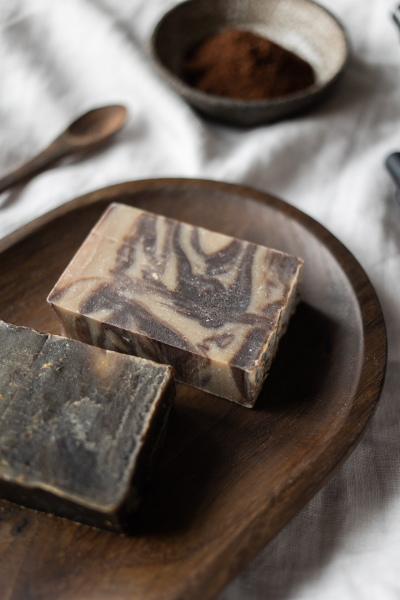 6. Avoid chemicals in your personal and home cleaning products – this is a big one and often overlooked! Our personal products such as shampoos, make-up, soap, perfumes, deodorants and toothpaste as well as our cleaning products can contain a plethora or chemicals. These chemicals can act as endocrine disruptors (hormone disruptors), can induce allergies, asthma and contribute to gut problems. Try to source natural products or make your own. Watch out for “green-washing” as some products may appear natural and environmentally friendly when they are not. TIP: Look for SCA (Safe Cosmetics Australia) verified products or other clean natural products that you have researched. For laundry and cleaning products look for toxin -free products. If you are struggling to find clean products please contact me for assistance.
6. Avoid chemicals in your personal and home cleaning products – this is a big one and often overlooked! Our personal products such as shampoos, make-up, soap, perfumes, deodorants and toothpaste as well as our cleaning products can contain a plethora or chemicals. These chemicals can act as endocrine disruptors (hormone disruptors), can induce allergies, asthma and contribute to gut problems. Try to source natural products or make your own. Watch out for “green-washing” as some products may appear natural and environmentally friendly when they are not. TIP: Look for SCA (Safe Cosmetics Australia) verified products or other clean natural products that you have researched. For laundry and cleaning products look for toxin -free products. If you are struggling to find clean products please contact me for assistance.
7. Get down and dirty! Sometimes we can be too clean and sterile. For gut health and microbial diversity, it is important that we get out in nature and away form the hand sanitiser. TIPs: Get outside, take a walk in nature, where possible take your shoes off, play in the garden with your kids or pet. When you do need to wash up, use a non-toxic soap and water.
 These 7 simple steps to better gut health are easy to implement. However, if you have issues with poor digestion, bloating, food intolerances, irritable bowel, fatigue etc. it is important that you have these addressed. This is where I can help you! Please contact me for an appointment so you can begin your healing journey.
These 7 simple steps to better gut health are easy to implement. However, if you have issues with poor digestion, bloating, food intolerances, irritable bowel, fatigue etc. it is important that you have these addressed. This is where I can help you! Please contact me for an appointment so you can begin your healing journey.

